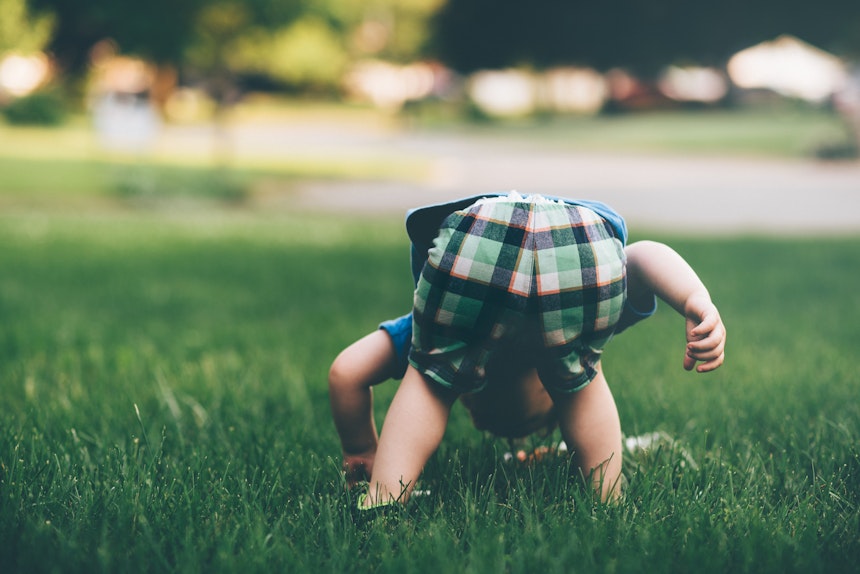Your baby learning to walk is a big occasion in any parent's life. Make sure you do everything you can to help them along the way.
When your baby is learning to walk, it is a hugely exciting time. Nowadays with camera phones, there is every chance you can catch those special moments.
When your child is learning to walk there are some things to consider or know and here, we share them with you so you can be prepared for what lies ahead.
Babies can take their first few steps, anytime between 9 – 17 months old, while most babies take their first steps by at least 14 months old, there are no definite times that your baby will begin to walk.
Babies start developing the skills to walk in the first year of their life by consistently building on their muscle strength by sitting and rolling before beginning to crawl.
Although, some youngsters don’t crawl and go straight to the main event! If your baby is showing no signs of walking by 18-24 months, it is a good idea to discuss this with your family doctor or with your public health nurse. Some babies do take their time and it usually isn’t anything to worry about.
When your baby begins to pull themselves up and stand while leaning against something, it is them learning to walk by cruising around furniture – expect lots of falls and perhaps, some tears!
The good news is, babies are resilient and while they may become upset or frustrated while learning how to walk, they’ll keep going.

Parents can help their baby during this time by teaching them how to sit down (after standing) safely as babies don’t understand straight away that they need to sit down carefully so they don’t hurt themselves.
Showing them is a good way to teach your baby, and if they land abruptly and are upset, give them some cuddles before showing them how to land right!
Encouraging your baby is another important part as babies love nothing more than pleasing their parents, so put out your hands and ask them to come to you. This works well when they are standing on their own for a period and have cruising down to a fine art, but they may not want to leap out to the floor without their parents to run into!
Don’t forget about safety. When your child is learning to walk, they may have falls and you can help them by ensuring that the living room or where they have their playtime is safe and secure.
This may mean putting away ornaments or pushing your nice coffee table into a corner as well as getting a fireguard. Safeguarding your home is vital and babies are going to find their way around their home, so once they are looking like they are going to be motoring soon, get ahead and put in the relevant child safety measures.
Your baby may not be able for the stairs when they are learning to walk but once they are more confident, there is nothing they won’t want to be challenged with. Get stair gates and if your home is big, maybe get a stair gate for some rooms – like a kitchen to ensure they can’t get in there without you.
While baby shoes are cute, most babies learn to walk while barefoot as socks are slippery. You can invest in a good pair of shoes once your child is walking or cruising well.
Buying those first pair of shoes is a big occasion so make sure you get plenty of photos. As well as that, buy them in a good shoe shop that understands baby’s feet to give them the best foot forward!






